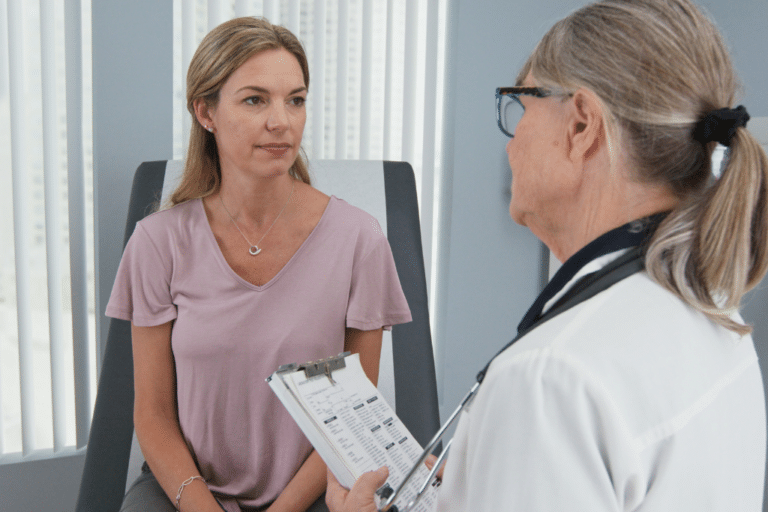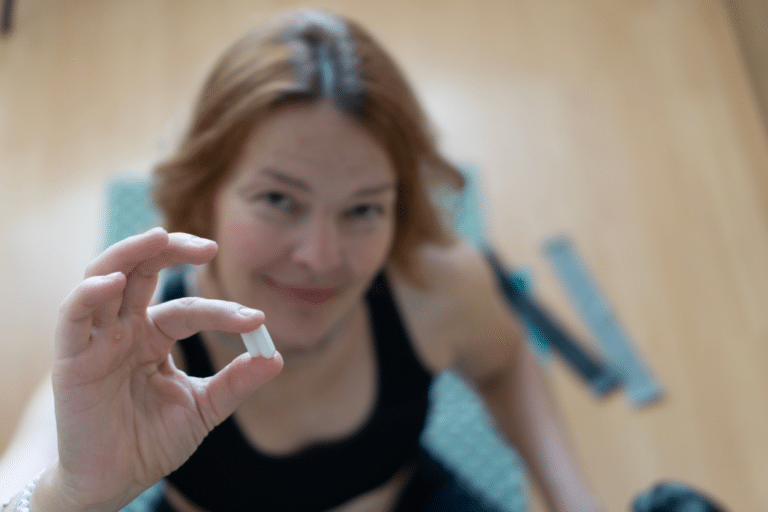Most of us think that gut health relates only to our bowels, but there’s much more to it than that. Our gut is also known as our “second brain.” This is because so many of our “brain chemicals,” like serotonin and dopamine, are actually produced in the gut.
Your gut is home to the enteric nervous system.
The enteric nervous system cells line the intestinal tract and help the GI tract digest food. But it’s much more than just a way to digest food. The ENS uses more than 30 neurotransmitters, just like the brain, and in fact, 95 percent of the body’s serotonin is made in the bowels. In just the last few years, more and more evidence has shown that the gut microbiome (bacteria) can influence brain chemistry and a wide range of behaviors, including emotional behavior, pain perception, and how the stress system responds.
What Neurotransmitters Are Produced in the Gut?
A large percentage of neurotransmitters are produced in the gut. These include serotonin, norepinephrine, dopamine, acetylcholine, melatonin, and GABA. Disruptions in the levels of these chemicals can contribute to depression, anxiety, seeking behaviors that provide “dopamine hits,” poor sleep, memory problems, and brain fog…to name a few.
What Role Does Our Gut Play in Mood?
One of the most significant ways our brains and bodies are connected is through the stress response. Our bodies respond to stress with “fight, flight or freeze”. When you’re in this mode, your body floods with cortisol and adrenaline. Over time, chronic stress produces more and more cortisol, which creates inflammation. Inflammation manifests in our digestive tract in a variety of ways, including:
- Leaky gut
- Chronic diarrhea, constipation, or bloating
- Irritable bowel syndrome (IBS)
The connection between the brain and the gut is so closely related that healthcare professionals sometimes prescribe antidepressants to help with the signs and symptoms of IBS. But this doesn’t actually solve the root cause of what’s going on…an imbalance of microbes and gut inflammation.
5 Ways to Improve Your Gut Health
-
Avoid alcohol
As tempting as it may seem to toss back your favorite cocktail this holiday season, you may want to rethink that for several reasons. Alcohol is essentially liquid sugar. Sugar has been shown to increase inflammation and cause a variety of problems in your gut (see #3 below). Also, alcohol itself is an antidepressant, so if you are already feeling down during this holiday season, it can increase instead of alleviate your holiday blues.
-
Eliminate gluten and/or dairy
Both dairy and gluten have been shown to increase inflammation in your body. Eliminating one or both may have a significant improvement on your overall mental well-being.
-
Cut down on sugar
Sugar in all forms feeds the bad bacteria in our guts. This increases inflammation and contributes to leaky gut syndrome.
-
Put the brakes on stress
Enjoy the holiday season. Find small ways to incorporate pleasure into your daily routine!
-
Get some sleep
Skimping on sleep to accomplish more this holiday season may seem like a good idea. Until it isn’t. Getting less than the recommended 8 hours per night sets us up for a whole host of issues. Protect your bedtime and try to go to bed at the same time each night.
Soothing Supplements to Ease Your Gut…
Gut health can be dramatically improved with the use of probiotics and soothing supplements. Here are a few to check out:
- Aloe vera: Studies have found that the juice of this plant significantly improves heartburn symptoms and constipation. Plus, it’s full of vitamins, minerals, and amino acids, which make it good for supporting the body’s natural detoxification process, and it helps calm inflammation to further soothe your stomach.
- Ashwagandha: Ashwagandha is thought to normalize several of the hormones that can cause symptoms of various stomach problems. It also has anti-inflammatory benefits and is especially useful in soothing stress-related stomach issues. Bonus: it can also help balance cortisol.
- GI Revive: This is a blend of many gut soothers such as l-glutamine, marshmallow root, slippery elm bark, licorice, etc. It’s helpful for reducing inflammation and helping to heal leaky gut.
- Pine bark extract (AKA pycnogenol): Pine bark can be very successful in reducing inflammation because of its high level of antioxidants This means it can help relieve inflammation-related digestive issues. Bonus: helps relieve joint pain.
- Chamomile: Due to its anti-inflammatory, anti-bacterial, and antispasmodic properties, it helps relax the muscles that line the stomach and intestines. Because of this, it has become a popular treatment to ease bowel movements and treat gas, upset stomach, stomach pain, cramping, indigestion, nausea, and stress-related flatulence. Bonus: it helps with sleep.
- Probiotics: Supplementing probiotics can help restore the balance of good bacteria and crowd out the bad actors. There are many brands of probiotics, many of which are shelf-stable. Look for a blend of different strains and take at least 50 billion CFU. Rotate the product you use every 3-4 months.
Where To Find Quality Supplements For Your Gut
And remember, when it comes to supplements, quality absolutely matters. Fullscript is my go-to source for the highest quality and best selection of supplements. You can access my store here: You can access my store here.
Healing your gut and balancing microbes allows neurotransmitter production to return to healthy levels, which in turn helps your mood, lifts the brain fog, improves sleep, and returns you to the pleasant human you want to be!
Dr. Anna Garrett is a menopause expert and Doctor of Pharmacy. She helps women who are struggling with symptoms of perimenopause and menopause find natural hormone-balancing solutions so they can rock their mojo through midlife and beyond. Dr. Anna is the author of Perimenopause: The Savvy Sister’s Guide to Hormone Harmony. Order your copy at www.perimenopausebook.com.
Also, she offers a membership group, Hormone Harmony with Dr. Anna Garrett, which provides women in midlife with affordable expert guidance and community support.
Dr. Anna is available for 1-1 consultation. Find out more at www.drannagarrett.com/lets-




